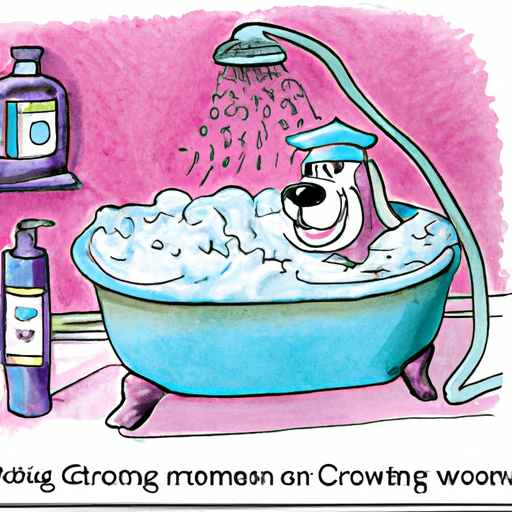As a pet parent, you know that familiar scenario all too well. You’re relaxing at home after a long day, and suddenly, you catch a whiff of a rather unpleasant odor. You look around, trying to identify the source, only to realize it’s your beloved canine companion. While it’s completely normal for dogs to have a distinct smell, it’s quite another when that aroma becomes overpowering. Don’t worry; we’ve got you covered. This comprehensive guide will provide an in-depth look at how to keep dogs from stinking.
- Table of Contents
- Understanding why dogs stink
- The importance of regular grooming
- Dietary changes to combat bad odors
- Dental hygiene for dogs
- Ensuring a clean living environment
- Dealing with medical conditions
-
Frequently Asked Questions
-
Key Takeaways
- Dogs can emit unpleasant odors for various reasons, including poor grooming, diet, dental issues, or underlying health conditions.
- Regular grooming, including bathing and brushing, can significantly reduce unpleasant smells.
- Dietary changes may also help combat bad odors.
- Dental hygiene is crucial in preventing bad breath in dogs.
- A clean living environment can help reduce the chances of your dog developing unpleasant smells.
Understanding Why Dogs Stink
While it’s easy to blame the odor on your dog’s love for rolling in the dirt or their latest encounter with a skunk, it’s important to understand that not all smells are created equal. Some can be a sign of underlying health issues. For instance, a yeast infection can cause a musty smell while kidney disease can result in a foul breath. Always consult with a vet if you notice a sudden change in your dog’s smell.
Your dog’s breed can also play a part in their smell. Some breeds have more oil on their skin, which can lead to a stronger odor. For example, Basset Hounds are known for their distinct smell due to their oily coats. You can find more about this topic here.
The Importance of Regular Grooming
Grooming your dog regularly is one of the most effective ways of combating bad odors. This includes bathing, brushing, and cleaning the ears.
According to Onetopdog, bathing your dog once a month is usually sufficient. However, this can vary depending on the breed and how often your dog plays outdoors. Ear cleaning is also vital as ears can harbor bacteria and yeast, leading to unpleasant smells. Brushing your dog’s coat removes dead skin and hair, reducing the chance of developing a foul odor.
Dietary Changes to Combat Bad Odors
Just as with humans, what a dog eats can greatly influence how they smell. Some foods can cause gas in dogs, leading to unpleasant smells. This is why it’s essential to feed your dog a balanced diet. You can find more about the ideal diet for your dog here.
Dental Hygiene for Dogs
Bad breath in dogs is not just unpleasant; it can also be a sign of dental disease. Regular teeth cleaning can help prevent this. There are various products available to help maintain your dog’s dental health, including dog-friendly toothpaste and dental chews.
Ensuring a Clean Living Environment
A clean living environment is crucial in keeping your dog smelling fresh. This includes regular cleaning of their bedding, toys, and the areas they frequently occupy.
Dealing with Medical Conditions
Some smells can be a sign of underlying medical conditions. If your dog’s odor persists despite your best efforts, it’s advisable to seek veterinary advice.
Frequently Asked Questions
1. Why does my dog smell so bad?
A dog might smell due to various reasons, including poor grooming, diet, dental issues, or underlying health conditions.
2. How often should I bathe my dog to keep them from stinking?
The frequency of bathing can depend on the breed and how often your dog plays outdoors. However, once a month is usually sufficient.
3. Can a change in diet help reduce my dog’s odor?
Yes, a balanced diet can help reduce unpleasant smells in dogs. Some foods can cause gas, leading to foul odors.
4. What if my dog’s bad odor persists despite my efforts?
If your dog’s odor persists, it’s advisable to seek veterinary advice as it could be a sign of an underlying medical condition.
Now that you’re armed with this knowledge, you’re well on your way to ensuring that your furry friend smells as good as they look. Remember, a stink-free dog is a sign of a healthy and well-cared-for dog. Happy pet parenting! For more on pet care, visit Onetopdog.



